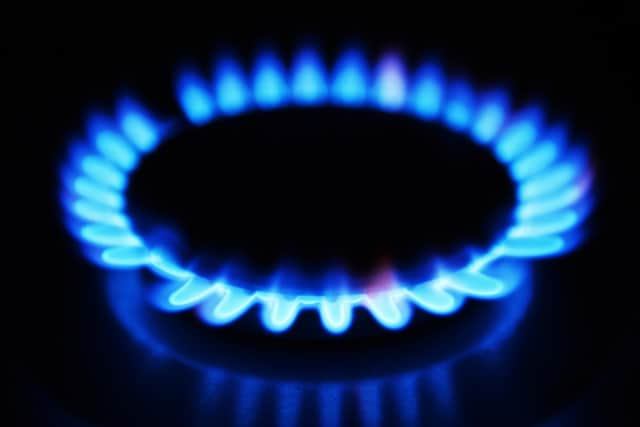Ukraine conflict: Russia again cuts natural gas exports to European countries cutting flows to Italy and Slovakia and completely to France
It is the third day of significant reductions to the fuel that powers industry and generates electricity in Europe, which also have hit Germany and Austria. It has further spiked already-high energy prices that are driving record inflation in the European Union.
Russia has blamed a technical problem for the cuts to the key Nord Stream 1 pipeline serving Germany and France, saying equipment being refurbished in Canada was stuck there because of western sanctions.
Advertisement
Hide AdAdvertisement
Hide AdLeaders in Germany and Italy called the reductions a political move, and it has escalated energy tensions in Europe, following Russia’s previous cut-off of natural gas to Poland, Bulgaria, Finland, the Netherlands and Denmark.


Ukrainian President Volodymyr Zelensky said on Friday that the reductions are “blackmail (against) both individual countries and Europe as a whole”.
Russia told Slovakia’s state-controlled gas company SPP that it would reduce deliveries to the country by 50%, SPP director Richard Prokypcak told a conference in Bratislava. The reason for the reduction has not been made clear.
Russian state-owned energy giant Gazprom told Italian gas company Eni on the same day that it would supply only 50% of the amount of gas requested for Friday, reducing the flow to one of Europe’s biggest importers of Russian gas for a third day.
Gazprom reduced by 15% Italy’s requested delivery on Wednesday. The Ansa news agency reported the Russian company dropped it by 35% on Thursday. Italy gets 40% of its gas from Russia but has been working to find alternative sources in countries like Algeria.
France is no longer receiving any natural gas from Russia. The French gas network operator GRTGaz said Russian supplies via Germany came to a halt on Wednesday after dropping by 60% over the first five months of the year.
The operator said on Friday that despite the halt in Russian supplies, no disruptions to gas supplies are expected this summer, in part thanks to more shipments via Spain. France normally gets about 17% of its natural gas from Russia, but gas is a relatively small part of France’s energy mix, at about 16%.
The cut in supplies to France was “a consequence of the already-known reduction” of gas supplies via the Nord Stream 1 pipeline, German economy ministry spokesman Stephan Gabriel Haufe said.
Advertisement
Hide AdAdvertisement
Hide AdRussia has said Canadian sanctions prevented German partner Siemens Energy from delivering equipment that had been sent there to be overhauled.
The German government said maintenance should not have been an issue until the autumn and the Russian decision was meant to sow uncertainty and push up prices.
Germany’s vice chancellor is stepping up an appeal for the country’s residents to save energy after Russia’s Gazprom announced significant cuts in natural gas deliveries through a key pipeline.
State-owned Gazprom announced on Tuesday that it was cutting gas flows through the undersea Nord Stream 1 pipeline to Germany by 40%, then, a day later, announced a further cut that brings the overall reduction to about 60%.
